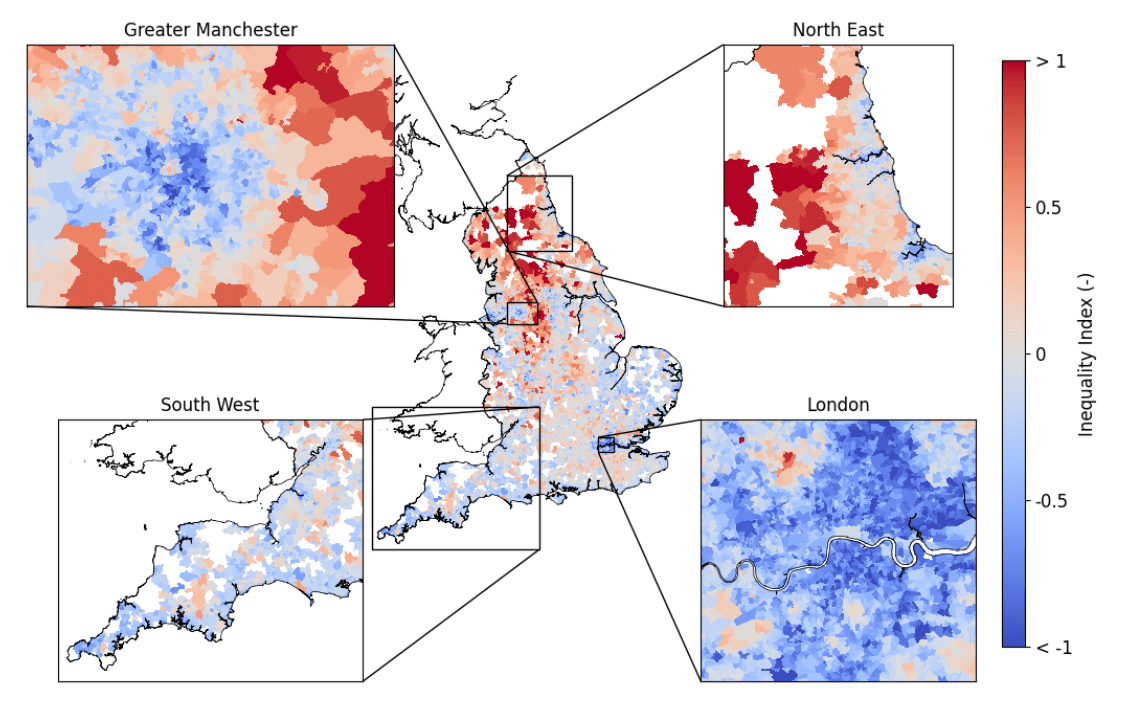Natural gas is responsible for 52% of the UK’s emissions. As such, for the UK to reach its net-zero emissions target by 2050, it must rapidly change its use of gas to be more sustainable.
This is no easy task. The gas grid is an intricate and expansive network which must account for daily fluctuations and seasonal changes in demand to consistently supply affordable energy. Any attempt to convert to alternative fuels could severely disrupt this supply. Furthermore, switching to sustainable options is a deeply interconnected problem and has far-reaching implications in many different sectors.
So, how can policymakers reduce the emissions of the gas grid when the problem is so vast? With so many sectors involved, how can they be sure of making well-informed decisions? Researchers from CARES and the University of Cambridge’s Department of Chemical Engineering and Biotechnology (CEB) may now have the answer.
For the first time, they have linked disparate information describing energy consumption, the gas transmission infrastructure and climate observations. Ordinarily, these data would be siloed, residing in inaccessible spreadsheets or in contrasting formats that are unable to interact. “But now, we can integrate climate observations with information relating to the UK gas transmission system, gas consumption and governmental administrative data,” said Thomas Savage, first author of the research, and an MPhil student in the Computational Modelling Group.
This achievement was possible thanks to The World Avatar project. The World Avatar uses a dynamic knowledge graph to enable interoperability between models and data from different sectors. It specifies the relationships between data, providing context and rendering the information more accessible, making it easier for computational software to interpret, query, and update the data.
What’s more, the researchers have already drawn actionable insights from the data using these methods. “We investigated the hypothetical situation of switching every gas-heated home in the country to being heated with heat pumps,” said Dr Jethro Akroyd, co-author of the study and Senior Research Associate in the Computational Modelling Group.

Electric heat pumps are one option that can reduce our reliance on natural gas. A heat pump works like a fridge in reverse, extracting warmth from the outside air, ground, or water sources before concentrating the heat and transferring it indoors. As gas boilers are phased out, heat pump installations are targeted to reach up to 600,000 a year in the 2030s.
Using temperature data throughout the UK and open data published by the UK government showing the quantity of gas consumed domestically, the researchers showed that “if each household switched to using a heat pump, they would each save about one tonne of carbon dioxide from being emitted each year,” said Dr Akroyd. This would reduce the total carbon dioxide emissions from the country by approximately 10%.
But interestingly, how a switch to heat pumps affected fuel bills was more complex. Based on 2019 prices, some parts of the country might save £30 per month on their fuel bills, while others may pay an extra £100-200. When these results were analysed, the researchers found that if all gas boilers were replaced with heat pumps, this would exacerbate ‘fuel poverty’ for households in the colder parts of the country.
A household is said to be in fuel poverty if, after paying their heating bills, the household’s residual money is below the poverty line. “We showed there are several regions already in fuel poverty would suffer large increases in their energy bills from this transition,” said Dr Akroyd.
These insights would not have been discovered without the World Avatar integrating data from infrastructure, climate, and socioeconomic sources. This allows the UK government to examine specific scenarios in enough detail to support local policymaking. “Instead of having a blanket policy that says everyone should have a heat pump, you can have localised policies that do not exacerbate inequality,” explained Dr Franziska Sielker, a Co-Investigator on the Cities Knowledge Graph project and Professor of Urban and Regional Research at Vienna University of Technology.
The World Avatar project has been applied to the UK climate data in this case, but the approach is general and scalable and can contribute to enabling interoperability across all sectors. Using a dynamic knowledge graph approach to represent and interconnect data has applications in everything from planning and designing cities, to reducing industrial emissions and increasing climate resilience.
The papers related to this research are “Universal Digital Twin– Integration of national-scale energy systems and climate data” (DOI: 10.1017/dce.2022.22) published in Data-Centric Engineering and “Universal Digital Twin– the impact of heat pumps on inequality” (DOI: 10.1016/j.adapen.2021.100079) published in Advances in Applied Energy.
This research is supported by the National Research Foundation, Prime Minister’s Office, Singapore under its Campus for Research Excellence and Technological Enterprise (CREATE) programme. Part of this work was supported by Towards Turing 2.0 under EPSRC Grant EP/W037211/1 & The Alan Turing Institute.


